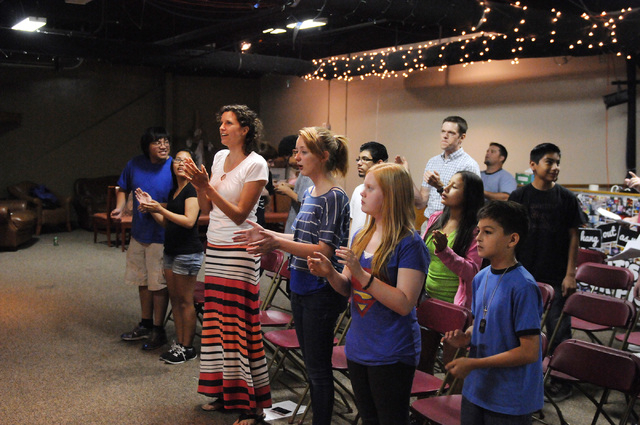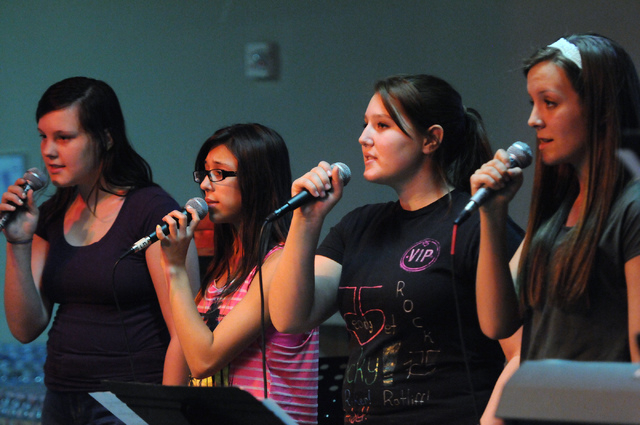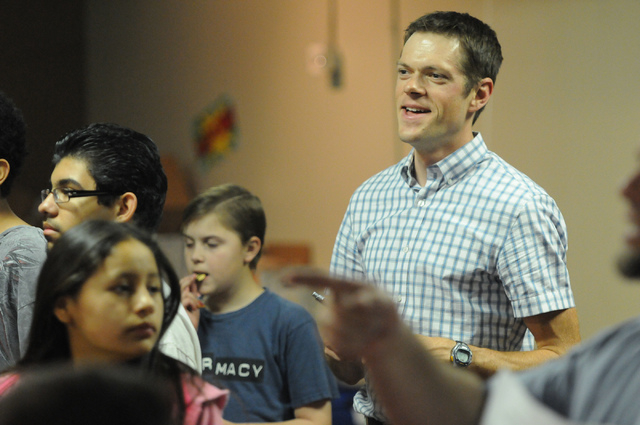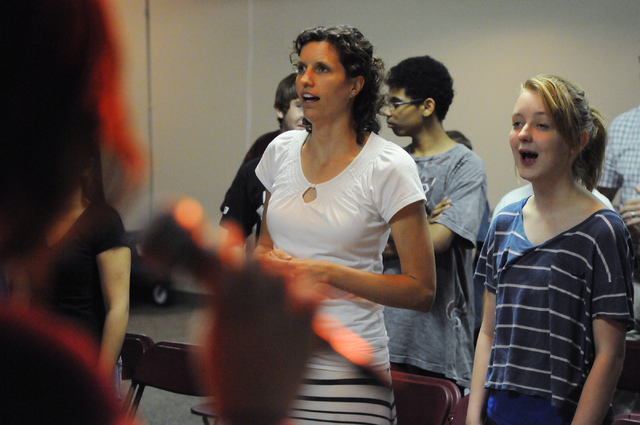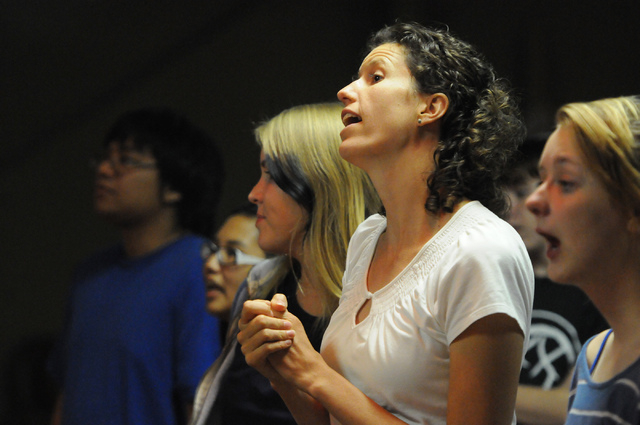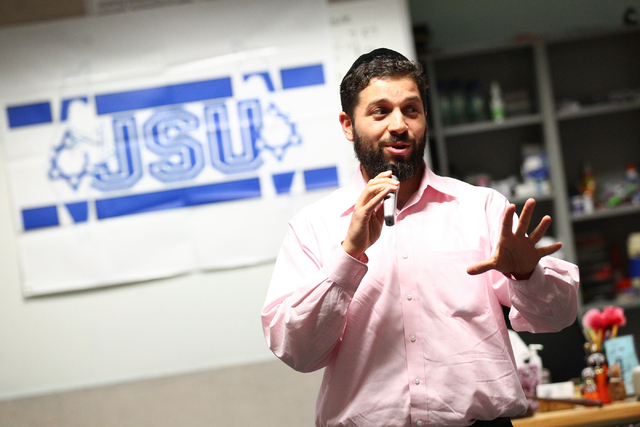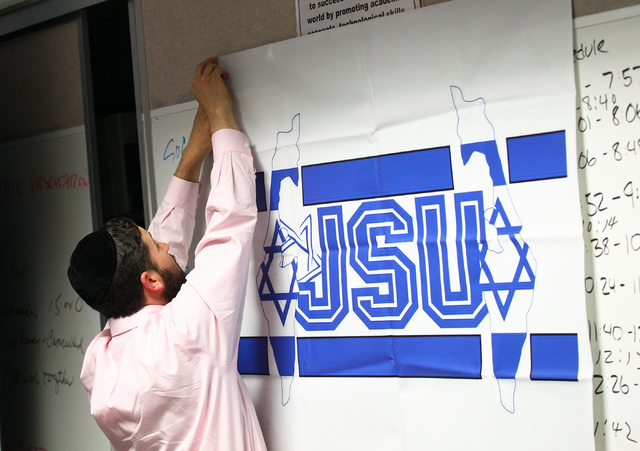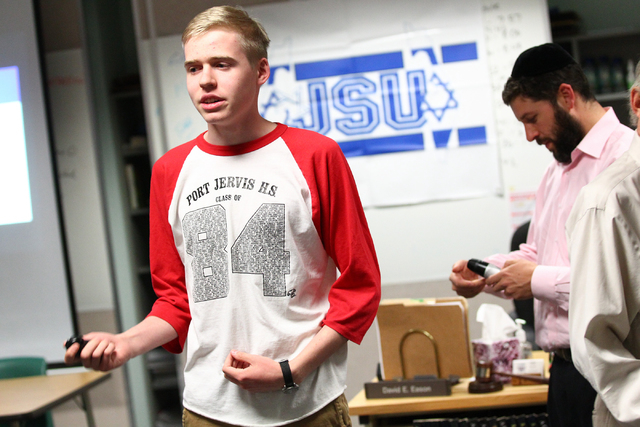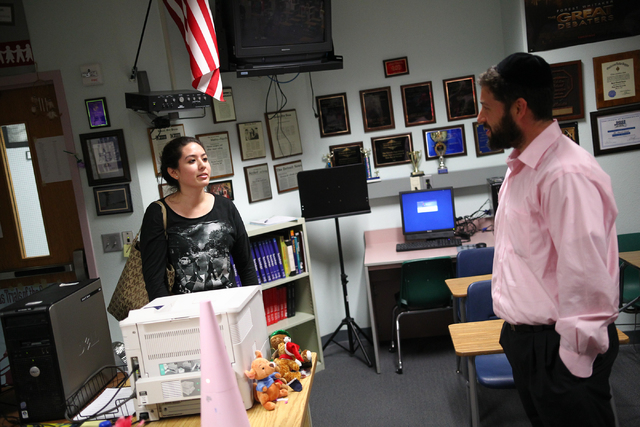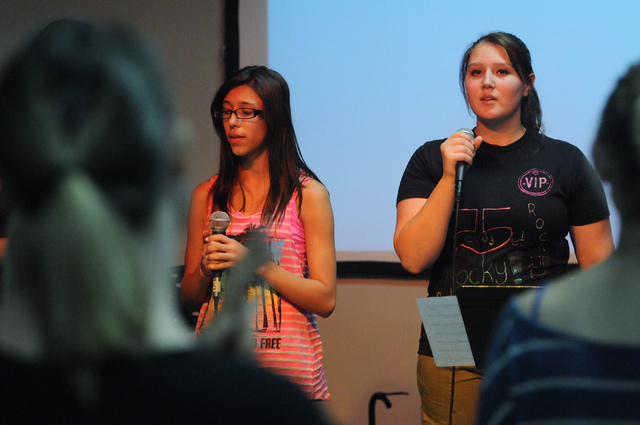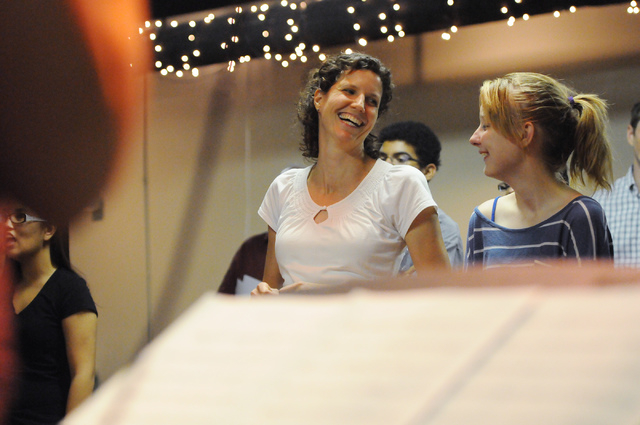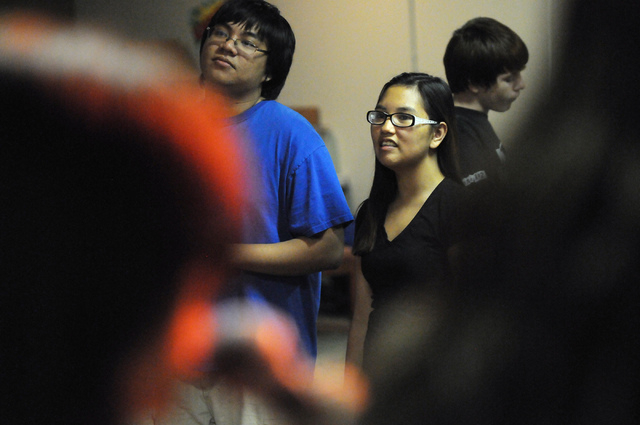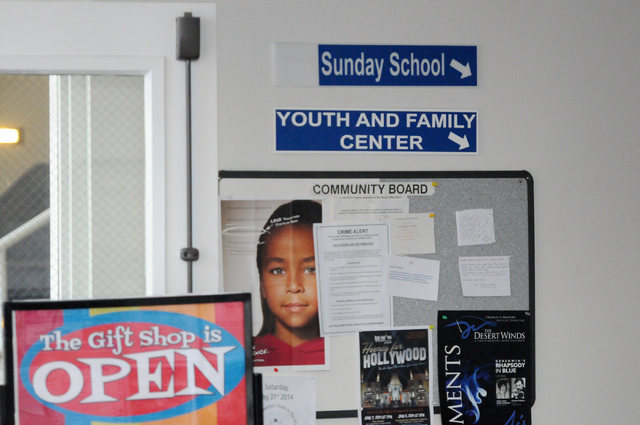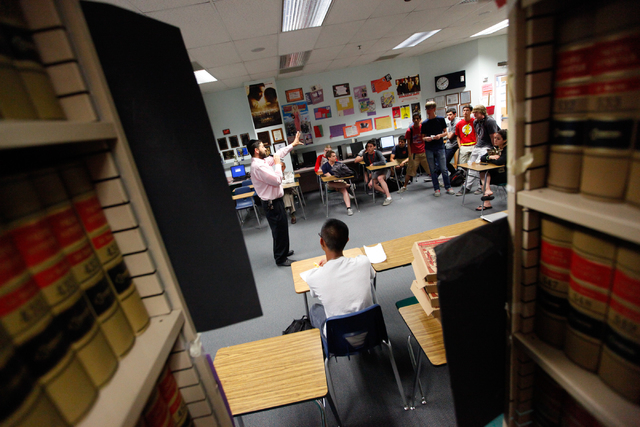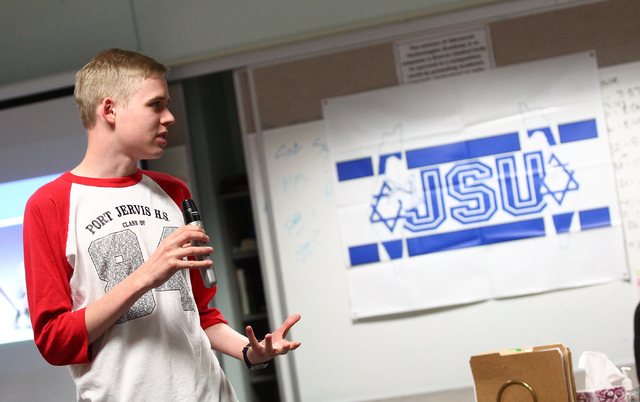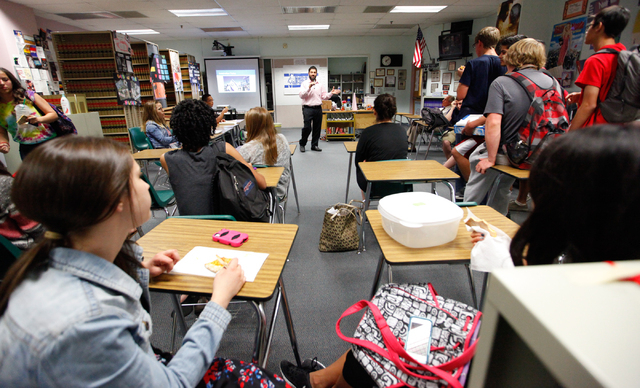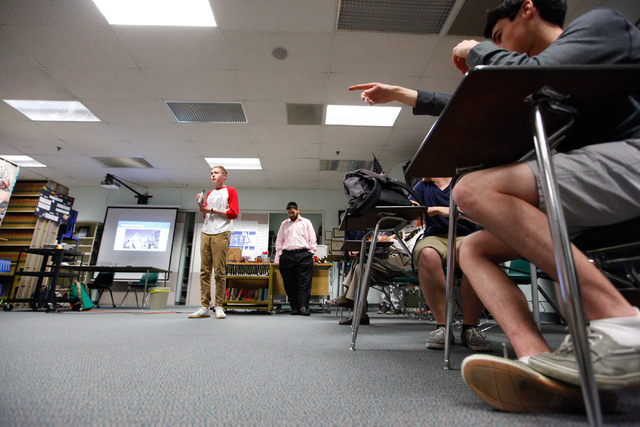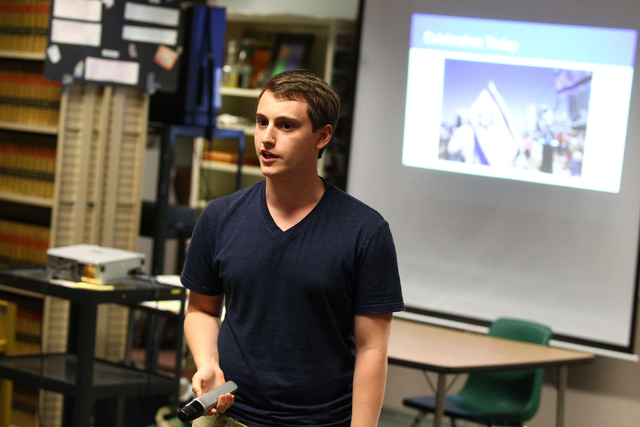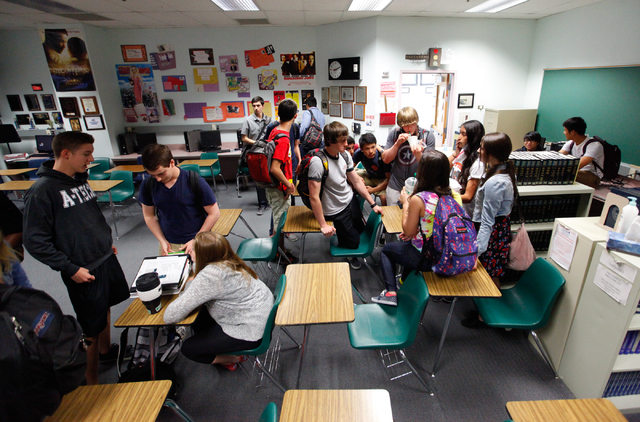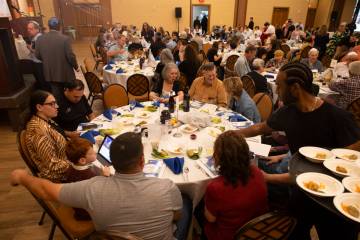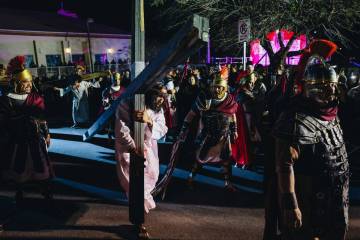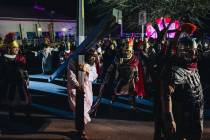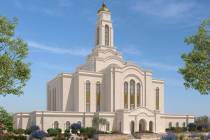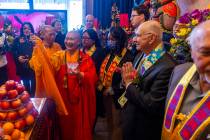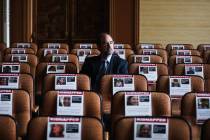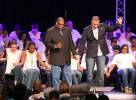Childhood crucial time for developing faith for the future
When you listen to Rabbi Yehuda Maryles talk about the teens he mentors as local director of the Jewish Student Union, it becomes clear that if he didn’t have a whaddya-gonna-do sense of humor, they would probably have him running for the door.
Although he jokes about the texting, the Instagramming, the needing “50 friends all on one computer screen at one time,” there is little doubt he also finds them amazing.
He has seen the students come up with service projects for the elderly, organize debates around religious themes, perform Jewish music, even bake cookies for Purim. For many of them, in fact, the cultural organization is the closest thing they have to gaining a religious education.
“They do a really great job, some of these kids have really floored me with their ideas,” he said. “I believe the teenage years are when (children) begin to shape their future. They’re free, they have the mind of an adult with the freedom of a child and they sort of are shaping, trial and error, trying to figure out what they’re going to be.”
Whether it is the latest research or the experiences of those who see it every day, there is little doubt that childhood is a crucial time for developing a sense of faith. Religious educators with the job of passing on the knowledge and traditions that can carry into a lifetime of practice, however, are given a big job. This is especially true when traditions are not passed down in the home.
Add in a world that seems more fragmented by the minute — because of the pace of technology, complex family dynamics, the list goes on — and the task is only compounded.
The good news for religious mentors is that by the time children reach adolescence, they are not exactly running from religion. A long-term study conducted from 2001 to 2010 called the National Study of Youth and Religion found that a majority of teens identify with a religion, with the most frequently cited affiliation being Protestant, followed by Catholic, LDS/Mormon, Jewish, Jehovah’s Witness and Muslim.
Their participation in religious practices, however, covers a wide range — from teens who regularly pray and attend religious services to those who believe religion is not necessarily relevant in their lives, according to the study. There is also this kind of watered-down knowledge about their faith. Although teenagers are curious about religion, it may not follow that they are good at articulating what they believe or why faith is important to them, the study noted.
Long before the study’s findings, congregations started looking at ways to engage young followers. Many of today’s religious-education curriculums incorporate more activities and hands-on learning. Educators are also trying harder to relate the values of religious faith to everyday life.
At Community Lutheran Church off of East Tropicana Avenue, youth group meetings for middle and high school students incorporate music, and activities such as skits and relay races, according to the Rev. Brian Ward, associate pastor. There is also a strong emphasis on community projects by helping groups, such as the Nevada Partnership for Homeless Youth, as a way to put religious values into practice.
Ward, who grew up in a small Minnesota town where church participation within his community was a given, noted that a lot of the students simply don’t have a familiarity with their religion compared with previous generations because they aren’t getting it at home.
This creates the toughest challenge, he said.
“You’re trying to reach people who can easily walk away, who can get bored. … I try to be a little more conscious of making someone memorize something versus what actually gets them to think about a topic, and really understand the idea of love, the idea of grace and what that means in your life,” he said.
According to Maryles, there are JSU clubs at seven valley high schools and many different types of Judaism are represented among the students, including Orthodox, Reform, Reconstructionist and Conservative. Most of the teens aren’t in traditional religious education so this connects them to their faith in a fun and exciting way, he said.
Although Marlyes shares his knowledge of Jewish culture and helps facilitate activities, the students are the driving force behind the clubs. The idea is that their JSU experiences will one day help them choose whether to make Judaism part of their adult lives, he said.
“They’ll actually have that opportunity if they have the positive experiences with it in the past,” he said.
In addition to making religion more accessible and engaging, educators are seeing the need to look at what’s going on in their students’ lives. Ward said he is often surprised by the kinds of personal issues students are facing, such as divorce in the family, suicide, bullying.
He noted that today’s students are much more comfortable asking the tough questions about their faith, which challenges educators to take a deeper look at “why we are teaching what we are teaching.”
Aslam Abdullah, director of the Islamic Society of Nevada, said that there is a search for knowledge among the younger generations that he sees across the board, no matter the religion, and it’s a move in the right direction.
“If they feel convinced about their faith then they will do things, otherwise they are not interested in repeating mechanical rituals without developing an understanding, and I think that’s a big change,” he said.
He also sees more of a “pluralistic” approach to religious education, or the attempt to understand other religions and what’s going on in the surrounding communities.
This acceptance is being seen among children and teens of all faiths.
“There is this emphasis on interfaith, an emphasis on a recognition of the fact that there are other religious traditions also that focus on the divine guidance and divine values, and focus on devotion, worshipping, all those things,” he said.



